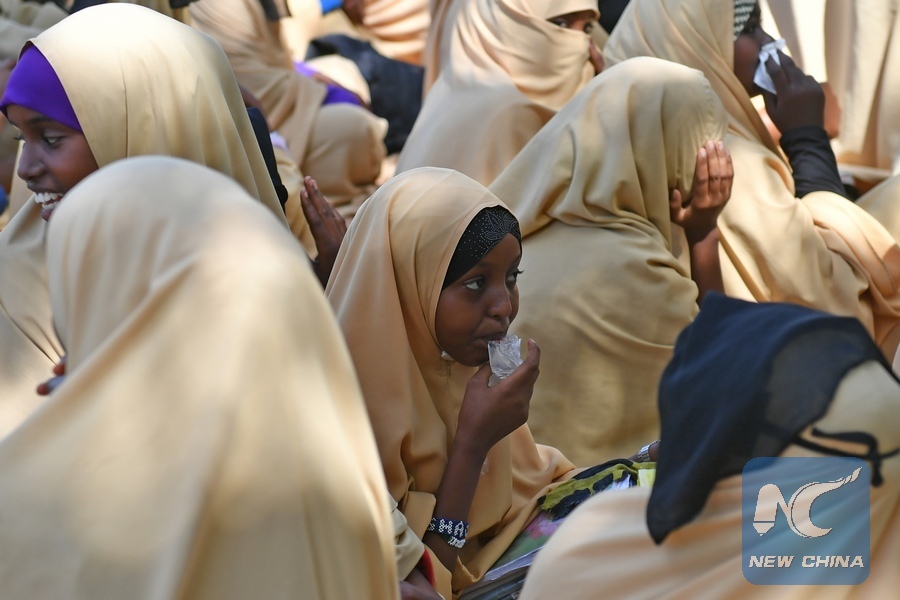
A Somali girl drinks packed drinking water at a school in Mogadishu, Somalia, on March 22, 2017. (Xinhua/Sun Ruibo)
MOGADISHU, April 28 (Xinhua) -- Over 1 million children in Somalia are at risk of increased violence, child labor and of being separated from their families due to severe drought ravaging the country, a global charity warned on Friday.
A new research from Save the Children said children are more vulnerable as many have been separated from their parents, are being pressured into child labor to support their families and hundreds of thousands are at risk of dropping out of school.
According to the study of more than 600 people, over 80 percent of those surveyed said children were attending school less often since the start of the drought.
"These findings are deeply distressing, revealing that beneath the visible crisis, children are also facing enormous psychological challenges as they battle hunger, uncertainty and overwhelming levels of stress," Save the Children Somalia Country Director Hassan Saadi Noor said.
Noor said children have become much more vulnerable and increasingly report abuses like rape and beatings as they try to collect firewood, look after livestock or fetch water.
"Those who have been forced into work, or had their household chores substantially increased, are also at an alarming risk of exploitation," the study says.
An estimated 6.2 million across Somalia, which includes the autonomous region of Somaliland, have been devastated by the drought, including almost 3 million children, of which more than 360,000 are suffering from acute malnutrition.
Noor said it was critical for all aid agencies responding to the drought in Somalia to work together to reach the most vulnerable families, meet their basic needs and encourage them to keep children in school.
"It is imperative that more is done to stop children dropping out of school, otherwise we risk reversing much of the progress made in Somalia over the last few years in terms of school enrollment," he said.
The study found the impact of the drought has gone far beyond life threatening shortages of essentials like food and water, and identified high levels of psychological distress faced by children who are exhibiting unusual symptoms like bouts of crying and screaming.
A staggering 100 percent of survey respondents, who are all drought affected, said they'd noticed changes in the behavior of children in their communities since the drought, with more than half saying children had become "more aggressive".
Violence against children was also said to be on the rise by nearly two-thirds of children and 47 percent of adults. 30 percent of all respondents said that children were more at risk of sexual violence, like rape and molestation, since the drought began.
"As aid workers we need to do everything we can to ensure children are not separated from their families and that they stay in school which is by far the best and safest place for them to be," said Noor.
"When this is absolutely not possible, we must work to provide safe shelters, with basic protections and offer emotional support to victims," he added.

